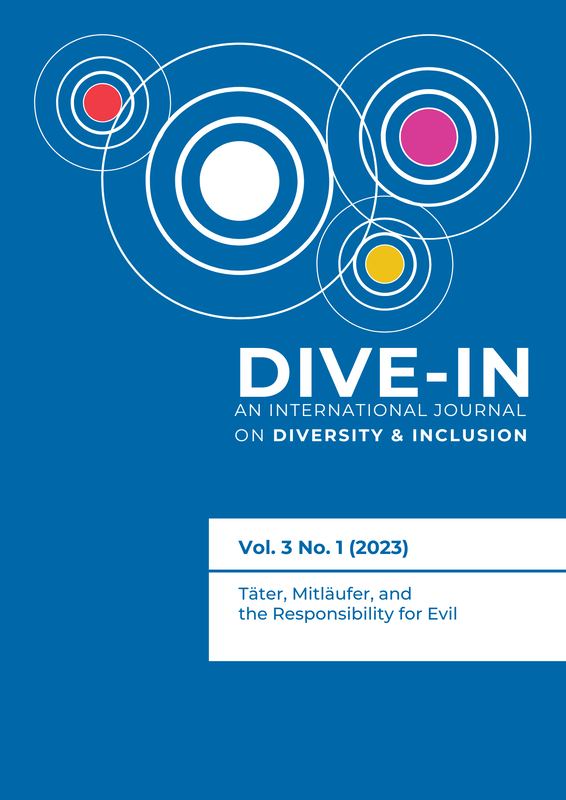Amnesia collettiva e Vergangenheitsbewältigung: Psicanalisi e letteratura nella Germania degli anni Sessanta
DOI:
https://doi.org/10.6092/issn.2785-3233/17012Keywords:
Vergangenheitsbewältigung, Shoah, Nazism, post-war era, German literatureAbstract
This paper aims to analyze the effects on German literature of the renewed interest in Nazi past. In order to do that, it considers Adorno’s and Mitscherlichs’ studies, in which they try – from a psychoanalytic point of view – to understand the mechanisms which made Germans support the leader and then made them remove their guilt. Then, the article focuses on some author of the early Sixties, in order to verify how they try to begin the Germans’ Vergangenheitsbewältigung. As far as possible, the paper examines the reception of these texts, trying to understand how and to what extent they give a contribution to overcome this collective amnesia.
References
Adorno, Theodor W. 1998. Critical models: Interventions and catchwords. Trad. H. Pickford. New York: Columbia University Press.
Arendt, Hannah. 1966. “Prefazione.” In Bernd Naumann, Auschwitz: A Report on the Proceedings against Robert Karl Ludwig Mulka and Others Before the Court at Frankfurt, xi-xxx. New York: Praeger.
Bablet, Denis. 1970. “L’instruction de Peter Weiss.” In Odette Aslan & Denis Bablet (eds.), Les voies de la création théâtrale, Vol. 2, 155–235. Paris: CNRS.
Benjamin, Walter. 1997. Sul concetto di storia. Trad. G. Bonola & M. Ranchetti. Torino: Einaudi.
Bentley, Eric. 1964. The storm over The Deputy. Essays and articles about Hochhuth’s explosive drama. New York: Grove Press.
Böll, Heinrich. 1980 [1959]. Biliardo alle nove e mezzo. Trad. M. Marianelli. Milano: Arnoldo Mondadori Editore.
Boos, Sonja. 2014. Speaking the Unspeakable in Postwar Germany: Toward a Public Discourse on the Holocaust. New York: Cornell University Press.
Castellari, Marco. 2008. “Dei molti inferni. La Shoah di Dante e Peter Weiss.” In Peter Weiss, Inferno, 237-261. Milano-Udine: Mimesis.
Conard, Robert. 1992. Understanding Heinrich Böll. Columbia: University of South Carolina Press.
Fabre, Giorgio. 2014. “Il caso Hochhuth.” Studi storici 54(3), 671–698.
Freud, Sigmund. 1976. Opere, Vol. 8: 1915-1917. Introduzione alla psicanalisi e altri scritti, a cura di C.L. Musatti. Torino: Boringhieri.
Gadda, Carlo Emilio. 1967. Eros e Priapo: da furore e cenere. Milano: Garzanti.
Gadda, Carlo Emilio. 2016. Eros e Priapo: versione originale, a cura di P. Italia & G. Pinotti. Milano: Adelphi.
Gandolfi, Roberta. 2011a. “La parete nera. Dispositivi della memoria nella messinscena de L’istruttoria di Peter Weiss, ad opera del Collettivo di Parma.” Ricerche di S/Confine 2(1), 69–88.
Gandolfi, Roberta. 2011b. “Storia e performance: un confronto fra due scritture sceniche de L’istruttoria di Peter Weiss.” Castello di Elsinore 24, 97–113. https://doi.org/10.13135/2036-5624/155
Garber, Zev & Bruce Zuckerman. 1989. “Why Do We Call the Holocaust ‘The Holocaust’? An Inquiry into the Psychology of Labels.” Modern Judaism 9(2), 197–211. https://doi.org/10.1093/mj/9.2.197
Hausner, Gideon. 1966. Justice in Jerusalem. Eichmann devant ses juges. New York: Harper & Row.
Hochhuth, Rolf. 1967 [1963]. Il vicario. Trad. I. Pizzetti. Milano: Feltrinelli.
Klemperer, Victor. 1949. LTI. Lingua Tertii Imperii. Notizbuch eines Philologen. Berlino: Aufbau-Verlag.
Miglio, Camilla. 2011. “Dante dopo Auschwitz. L’Inferno di Peter Weiss.” Critica del testo 14(1), 1–23. https://doi.org/10.1400/177173
Mitscherlich, Alexander & Margarete Mitscherlich-Nielsen. 1970 [1967]. Germania senza lutto. Psicoanalisi del postnazismo. Trad. P. Monaci & R. Torsini. Firenze: Sansoni.
Nobécourt, Jacques. 1964. “Le Vicaire” et l’histoire. Paris: Éditions du Seuil.
Raddatz, Fritz Joachim. 1963. Summa iniuria oder, Durfte der Papst schweigen? Hochhuths “Stellvertreter” in der öffentlichen Kritik. Reinbek: Rowohlt.
Schwarz, Egon. 1964. “Rolf Hochhuth’s The Representative.” Germanic Review 39, 211–230.
Walser, Martin. 1965. “Unser Auschwitz.” Kursbuch 1, 189–200.
Weiss, Peter. 1966 [1965]. L’istruttoria. Trad. G. Zampa. Torino: Einaudi.
Weiss, Peter. 1967 [1962]. Punto di fuga. Trad. U. Gimmelli. Torino: Einaudi.
Weiss, Peter. 1982. Notibücher 1. Frankfurt a. M.: Suhrkamp Verlag.
Weiss, Peter. 1990. Rapporte. Frankfurt a. M.: Suhrkamp Verlag.
Weiß, Cristoph. 2008 [2003]. “Postfazione.” In Peter Weiss, Inferno. Trad. M. Castellari, 263–285. Milano-Udine: Mimesis.
Wieviorka, Annette. 1999. L’era del testimone. Trad. F. Sossi. Milano: Cortina.
Wittmann, Rebecca. 2012. Beyond Justice: The Auschwitz Trial. Cambridge: Harvard University Press.
Downloads
Published
How to Cite
Issue
Section
License
Copyright (c) 2023 Filippo Pelacci

This work is licensed under a Creative Commons Attribution 4.0 International License.





